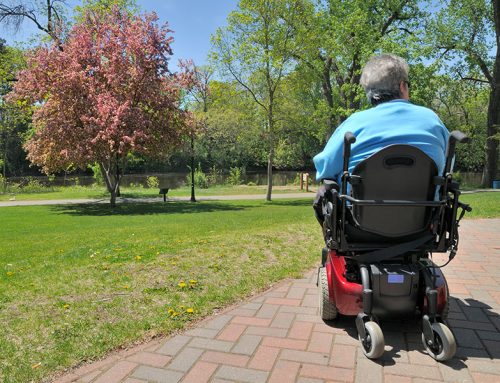
MS patients may consider using a wheelchair to conserve strength and reduce fatigue or to prevent falls. Clinical trial evidence shows that high doses of CoQ10 daily can reduce the feeling of fatigue.
Daily supplementation of 60 multiple sclerosis patients with 200 milligrams of Coenzyme Q10 for three months showed beneficial clinical outcomes for the multiple sclerosis patients [Moccia 2019]:
- fewer symptoms of depression
- less disability, fatigue, and pain
The open-label crossover design study also had the following biological benefits [Moccia 2019]:
- decreased the intracellular production of harmful free radicals
- reduced the extent of oxidative damage in the peripheral blood
- improved the anti-inflammatory environment in the peripheral blood
- attenuated the extent of pro-inflammatory cytokines in the peripheral blood
CoQ10 and MS and Depression and Fatigue
In a randomized, double-blinded, placebo-controlled trial, daily CoQ10 supplementation of multiple sclerosis patients with 500 mg/day for 12 weeks was associated the following health benefits [Sanoobar 2016]:
- a significant decrease in fatigue symptoms quantified using the fatigue severity scale
- a significant improvement of depression symptoms as shown in Beck Depression Inventory scores
CoQ10 and MS and Inflammation and Oxidative Stress
In the same study, supplementation with 500 milligrams per day for 12 weeks significantly reduced the blood levels of known bio-markers for systemic inflammation compared to the placebo group [Sanoobar 2015]:
- Tumor necrosis factor-α levels
- Interleukin 6 levels
In addition, the CoQ10 supplementation was associated with a significant reduction in malondialdehyde, a bio-marker for oxidative stress, suggesting that the CoQ10 was acting as an antioxidant scavenging harmful free radicals [Sanoobar 2013].
Conclusion: CoQ10 and MS
- Oxidative stress and systemic inflammation are drivers of multiple sclerosis.
- CoQ10 supplementation at high doses (500 mg/day) reduces the levels of bio-markers of oxidative stress and inflammation.
- CoQ10 supplementation at high doses (500 mg/day) shows some evidence of clinical improvement in MS patients and should be confirmed in longer-term studies.
- CoQ10 supplements differ in formulation and differ in absorption and bioavailability. A cheaply made CoQ10 product will not give
Sources
Moccia M, Capacchione A, Lanzillo R, et al. Coenzyme Q10 supplementation reduces peripheral oxidative stress and inflammation in interferon-β1a-treated multiple sclerosis. Ther Adv Neurol Disord. 2019;12:1756286418819074.
Sanoobar M, Dehghan P, Khalili M, Azimi A, Seifar F. Coenzyme Q10 as a treatment for fatigue and depression in multiple sclerosis patients: A double blind randomized clinical trial. Nutr Neurosci. 2016;19(3):138-43.
Sanoobar M, Eghtesadi S, Azimi A, Khalili M, Khodadadi B, Jazayeri S, Gohari MR, Aryaeian N. Coenzyme Q10 supplementation ameliorates inflammatory markers in patients with multiple sclerosis: a double blind, placebo, controlled randomized clinical trial. Nutr Neurosci. 2015 May;18(4):169-76.
Sanoobar M, Eghtesadi S, Azimi A, Khalili M, Jazayeri S, Reza Gohari M. Coenzyme Q10 supplementation reduces oxidative stress and increases antioxidant enzyme activity in patients with relapsing-remitting multiple sclerosis. Int J Neurosci. 2013 Nov;123(11):776-82.
The information presented in this review article is not intended as medical advice and should not be used as such.
25 December 2020




Leave A Comment